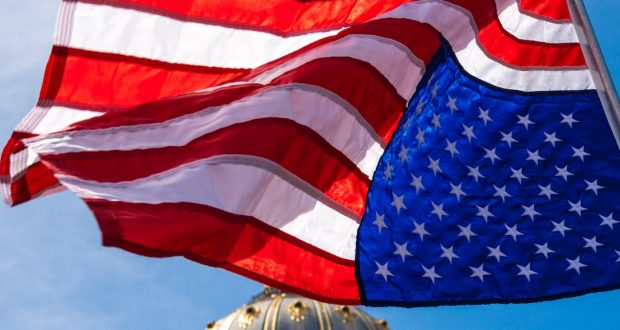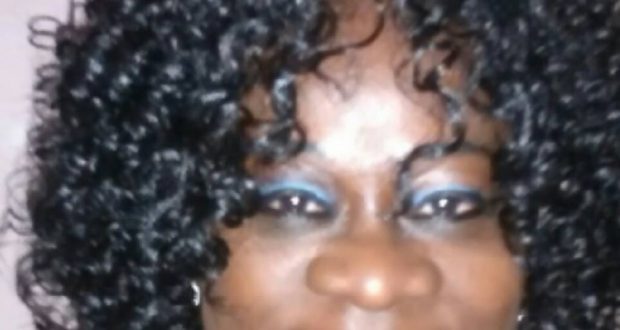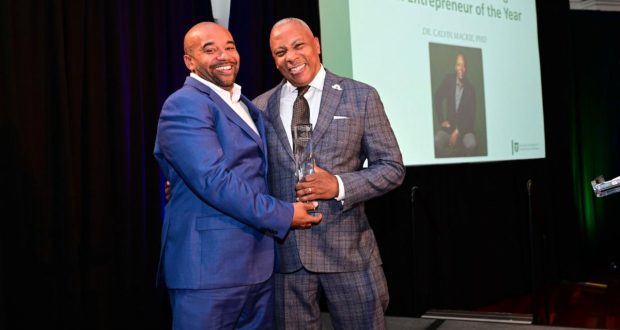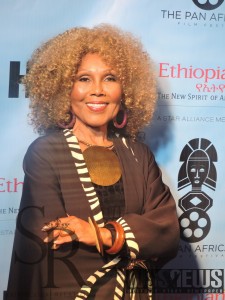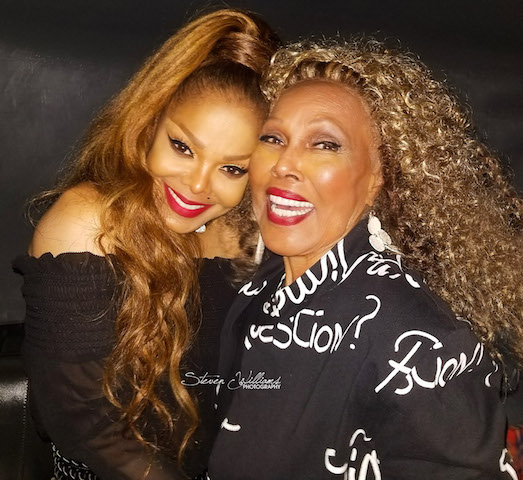LOS ANGELES, CA—- The Pan African Film and Arts Festival (PAFF) wrapped its 12-day marathon of offerings from around the Diaspora. It celebrated its 28th anniversary in grand style with a string of highly-anticipated films, which included a comedy by the multi-hyphenated host and entertainer Nick Cannon; a feature, executive produced by NBA legend Shaquille O’Neal; plus, a special screening of the action-packed series, “Queen Sono,” out of South Africa, presented by Netflix along with a wedding! The festival was held from February 11 – 23, 2020 at the Cinemark 15 Theatres, located at the Baldwin Hills Crenshaw Plaza in Los Angeles.
PAFF is the largest Black film festival in the United States and the largest Black History Month cultural event in the nation. Here are the festival stats: PAFF has selected a record-breaking 225 film, representing 52 countries in 26 languages – that is, 86 feature films; 128 short films and 11 new media selection. Plus, ArtFest will feature more than 100 fine artists from around the world. The Academy of Motion Picture Arts and Sciences (AMPAS) has designated PAFF as an official qualifying film festival for live action and animation short films.
The festival has cemented its role as a hub for breakthrough and award-winning Black films and filmmakers from around the world. PAFF is dedicated to the cinematic promotion and cultural exploration of peoples of African descent. It is PAFF’s goal to present and showcase the broad spectrum of Black creative works, particularly those that reinforce positive images and help destroy negative stereotypes. PAFF believes film and art can lead to better understanding and foster communication between peoples of diverse cultures, races, ethnicities, and lifestyles in an entertaining way.
The festival handed out a variety of juried prizes, including Best Narrative Feature, Best First Feature Film, Best Documentary Feature, Best Documentary Short, and Best Narrative Short as well as audience favorite awards during an awards ceremony at the close of the festival.
In honor of the late actress and co-founder Ja’Net Dubois, who unexpectedly passed away during the festival, prizes were re-named in her honor. Dubois was best known for her role as Willona in the TV series, “Good Times.”
And so, without further ado, here’s a list of winners from the Pan African Film Festival.

AND THE WINNERS ARE …
Best Feature Narrative Award
The Mercy of the Jungle (Rwanda) Directed by Joël Karekezi
Honorable mention
Knuckle City (South Africa) Directed by Jahmil X.T. Qubeka
Best First Feature Narrative Award
A Taste of Our Land (Uganda) Directed by Yuhi Amuli
Honorable Mention
Mr. Weekend (US) Directed by McKenzie Woodward
Best Documentary Award
One Child Left Behind: The Untold Atlanta Cheating Scandal (US) Directed by Jodi Gomes
Honorable Mention
PUSHOUT: The Criminalization of Black Girls in Schools (US) Directed by Jacoba Atlas
Best Short Narrative Award
White Gold (South Africa) Directed by Luke Bradford
Honorable mention
My Father Belize (Belize) Directed by Leon Lozano
Programmers’ Best Narrative Feature
She Ball (US) Directed by Nick Cannon
Programmers’ Best Short Narrative
Sixteen Thousand Dollars (US) Directed by Symone Baptiste
Programmers’ Best Documentary Award
parTy boi: black diamonds in ice castles (US) Directed by Micheal Rice
Programmers’ Best First Feature Narrative Award (Tie)
Coming From Insanity (Nigeria) Directed by Akinyemi Sebastian Akinropo
Gonarezhou The Movie (Zimbabwe) Directed by Sydney Taivavashe
Special Programmers’ Award
The Cuban (Canada/Cuba) Directed by Sergio Navarretta
Ja’Net Feature Narrative Award
HERO – Inspired By The Extraordinary Life & Times of Mr. Ulric Cross (Canada/Trinidad and Tobago/Ghana/UK) Directed by Frances-Anne Solomon
Ja’Net Short Narrative Award
Code_Switch (US) Directed by Sigin Ojulu
Ja’Net Documentary Award
My Friend Fela (Brazil/Nigeria) Directed by Joel Zito Araújo
Ja’Net First Feature Narrative Award
Zulu Wedding (South Africa) Directed by Lineo Sekeleoane
Special Ja’Net Award
Foster Boy (US) Directed by Youssef Delara
 Westside Story Newspaper – Online The News of The Empire – Sharing the Quest for Excellence
Westside Story Newspaper – Online The News of The Empire – Sharing the Quest for Excellence
